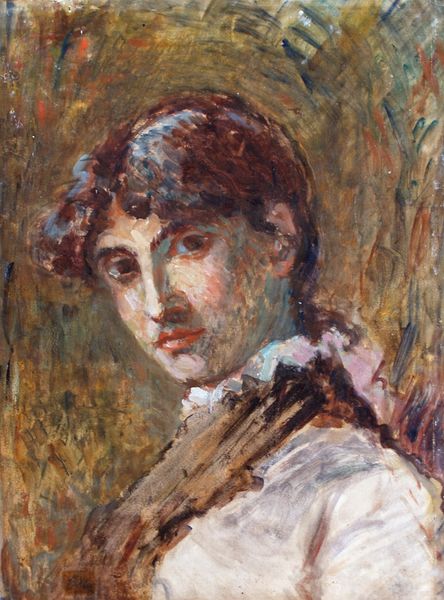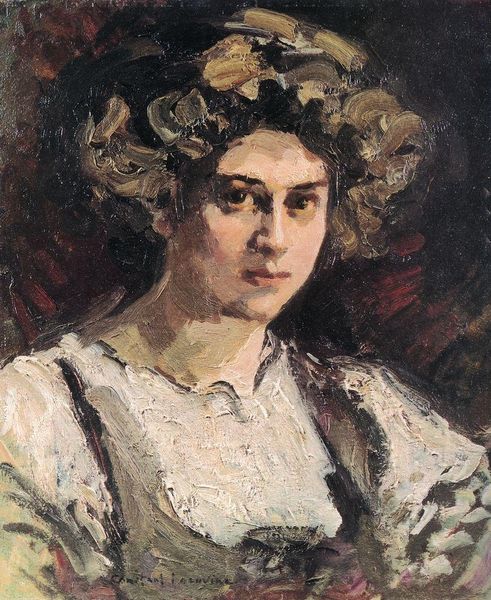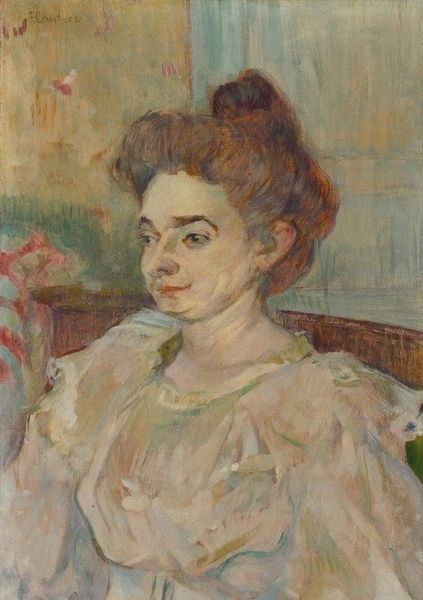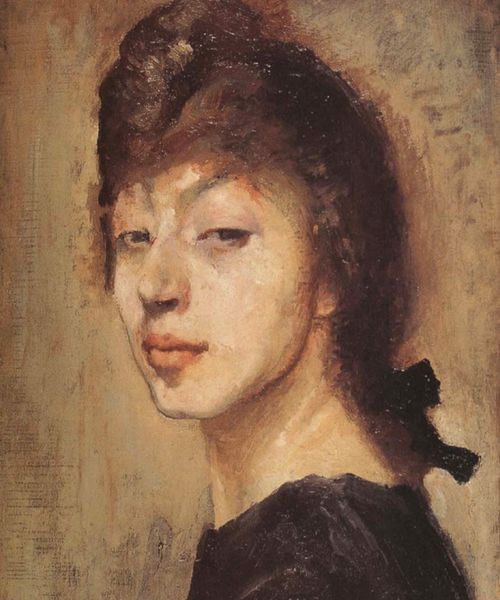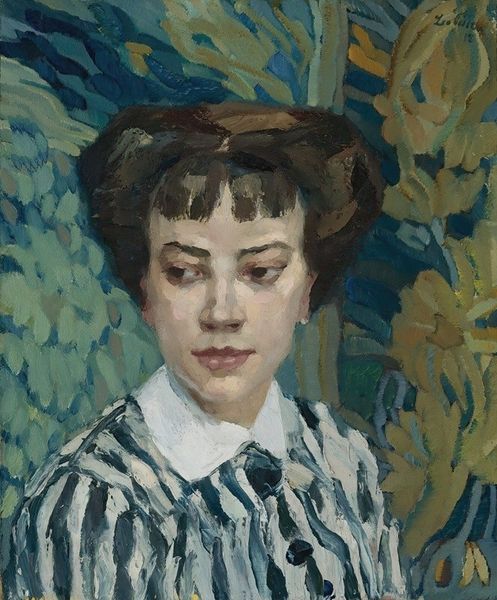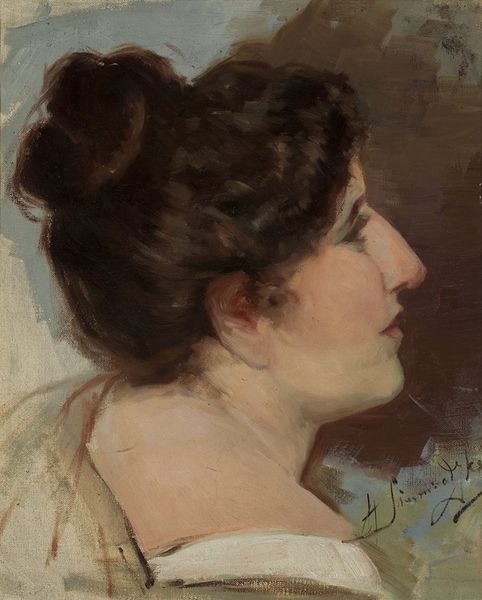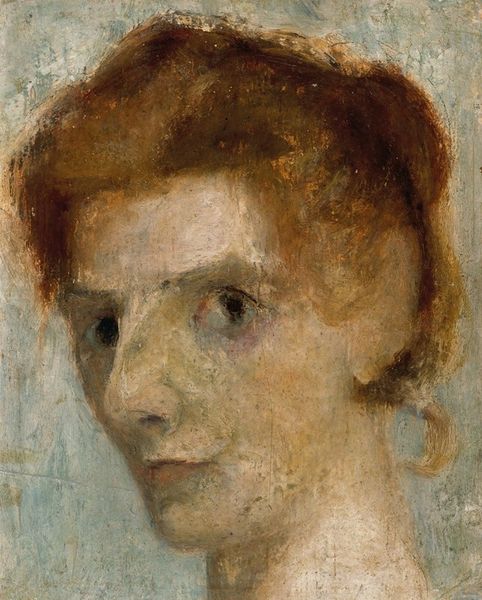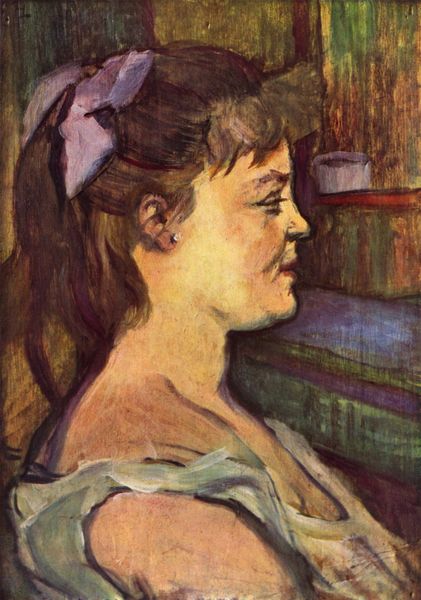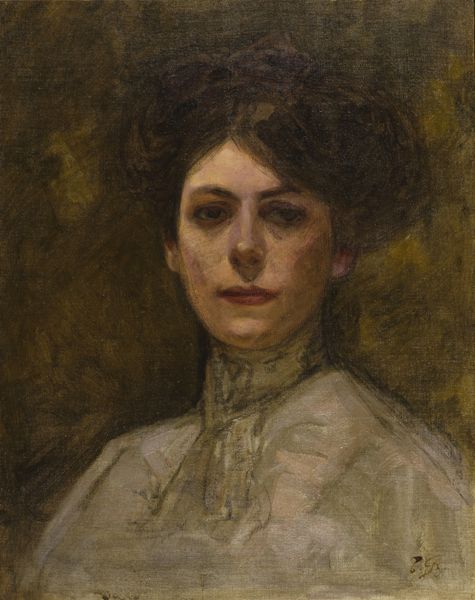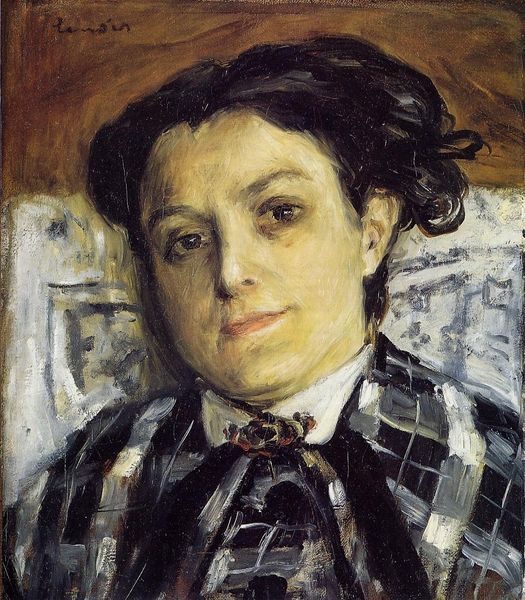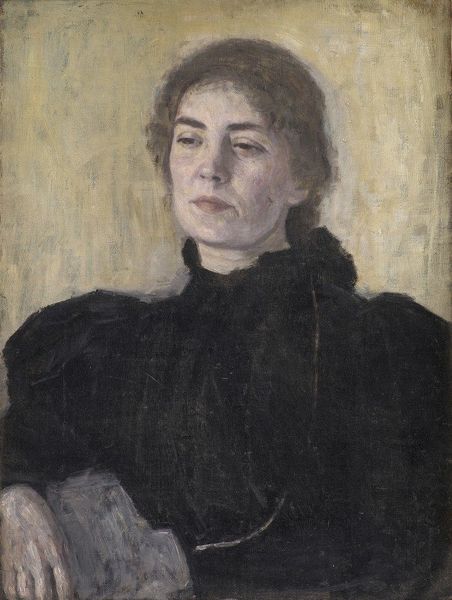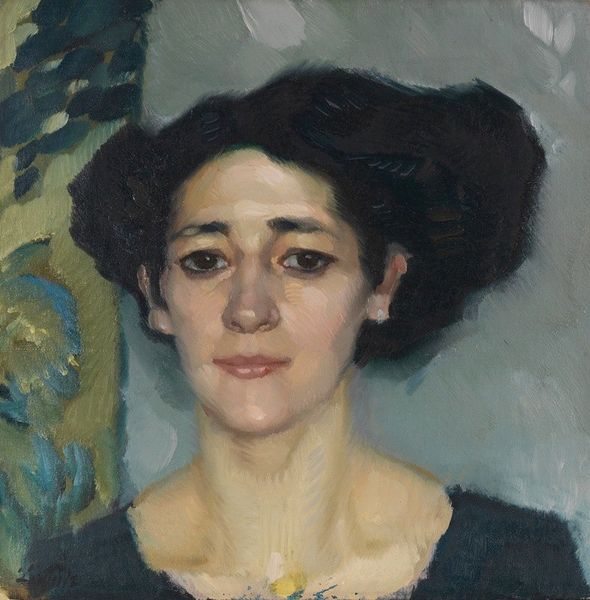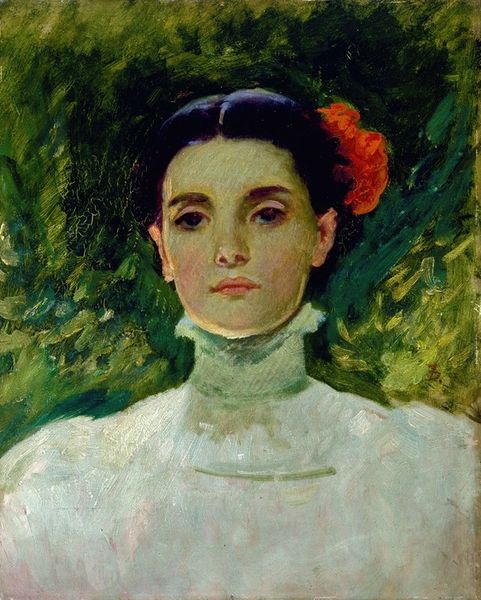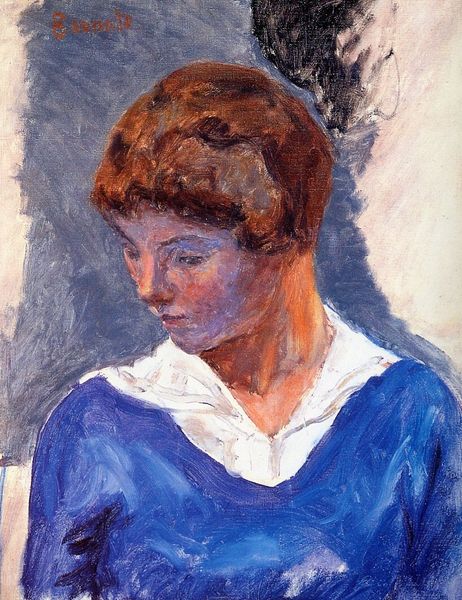
oil-paint
#
figurative
#
oil-paint
#
oil painting
#
symbolism
#
history-painting
Copyright: Public Domain: Artvee
Editor: This is Jacek Malczewski's "Portrait of Helena Sulima, actress, as Gorgon," painted in 1903 with oil paint. What strikes me is how contemporary it feels despite its age; even though it is clearly playing on an antique mythical story, Helena doesn't seem terrifying, she is pensive, and seems in control. How do you interpret the choices behind Malczewski’s portrayal? Curator: Looking at this painting, I’m struck by how it reflects the social role of artists like Malczewski at the time. The oil paint itself, the labour of the artist to painstakingly create these scales and fleshy tones, and who would have consumed such art. Consider, this wasn't mass-produced; it required significant investment. Who would have commissioned or purchased it, and what did that say about their own status and consumption habits? How does this reinforce or challenge ideas of "high" art versus other forms of visual expression? Editor: So, it's less about Medusa as a figure and more about how the act of painting her in oil reflects social and economic power structures? Curator: Exactly. Malczewski is using this historical subject matter, oil paints, likely linen canvas to produce a commodity that is bound up within systems of production and consumption. It represents artistic labour in a market driven by wealthy patrons. The painting exists because someone could afford it, reflecting and perpetuating a specific social dynamic. How do we understand that relationship when we examine his artistic intentions? Editor: I never thought about art that way! I suppose the snakes could symbolize dangerous beauty as an easily consumed ideal… Curator: Precisely. What, in your opinion, is the true intention and deeper meaning of his rendering of Helena? It invites further inquiry into the dynamic interplay between labor, materials, artistic agency, and class that existed in this moment. Editor: That's really given me a new perspective on art and its place in society. It makes me realize how crucial the context of production is. Thank you.
Comments
No comments
Be the first to comment and join the conversation on the ultimate creative platform.
